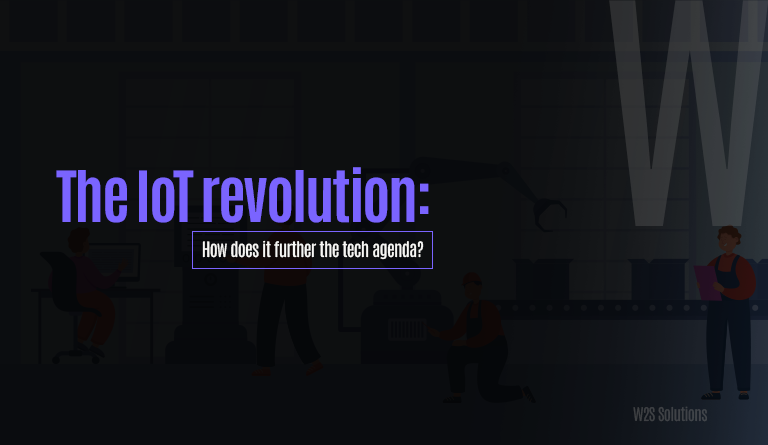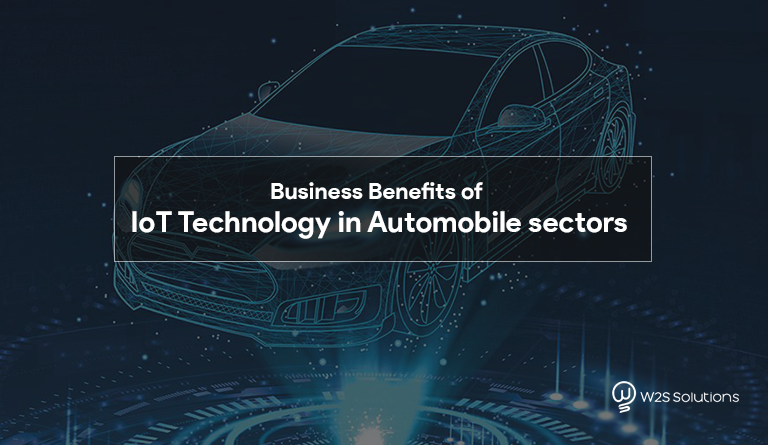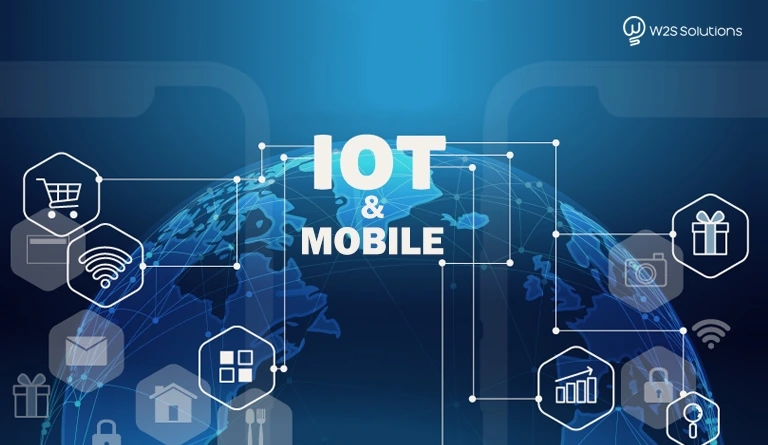Key Takeaways
-
IoT’s real-time insights optimize supply chain processes, reducing errors and enhancing overall efficiency in goods movement.
-
In healthcare, IoT ensures personalized treatment through continuous monitoring, showcasing its crucial role in advancing patient-centric care.
-
The integration of IoT in urban environments leads to smart cities, promoting resource optimization and sustainability for a more connected and innovative future.
-
IoT brings tangible improvements to daily life, evident in smart homes, connected vehicles, and retail optimization, enhancing convenience and efficiency.
The Internet of Things (IoT) stands out as a transformative force, connecting devices and enabling seamless communication between the physical and digital worlds. As we navigate tomorrow, the applications of IoT continue to reshape industries and enhance our daily lives. In this article, we’ll explore the top 10 IoT applications that are driving innovation and shaping the future.
What is IoT?
The Internet of Things (IoT) is a revolutionary technology that interconnects everyday objects, devices, and systems through the Internet. It enables communication and data exchange between these entities, transforming them into intelligent, data-driven components.
IoT relies on sensors, actuators, and connectivity to collect and transmit information, facilitating real-time monitoring, analysis, and control. This interconnected network allows for smart applications across various domains, from smart homes and cities to industrial processes and healthcare. Ultimately, IoT empowers enhanced automation, efficiency, and decision-making capabilities, heralding a new era where the physical and digital worlds converge for unprecedented innovation.
Top Applications of IoT
1. Smart Cities
IoT integration in urban environments births smart cities, optimizing resources and elevating the quality of life. With applications like intelligent traffic management and advanced waste disposal systems, IoT sensors enable real-time data collection, fostering heightened efficiency and sustainability in urban living.
These interconnected technologies create a dynamic urban landscape where data-driven insights pave the way for smarter resource allocation and improved civic services, ultimately shaping a future where cities thrive on innovation and connectivity.
2. Industrial IoT (IIoT):
Industries are experiencing a transformative revolution as IoT seamlessly integrates into manufacturing processes. The Industrial Internet of Things (IIoT) emerges as a catalyst for heightened productivity, offering real-time monitoring of equipment, predictive maintenance, and supply chain optimization. This interconnected ecosystem enables manufacturers to make data-informed decisions, reducing downtime and enhancing overall efficiency.
IIoT’s predictive analytics prevents equipment failures and streamline supply chain processes, ensuring a seamless flow from production to distribution. The result is a shift in industrial operations, where the marriage of technology and manufacturing processes leads to increased agility and cost-effectiveness.
3. Healthcare Monitoring
The healthcare industry is undergoing a remarkable transformation with the pervasive influence of IoT. Wearable devices and smart sensors have become integral components, meticulously monitoring vital signs, medication adherence, and overall well-being. This technological synergy allows for remote patient monitoring, ushering in an era of personalized treatment plans and more effective healthcare delivery.
Patients benefit from continuous, real-time data collection, empowering healthcare providers to make informed decisions promptly. This proactive approach not only improves patient outcomes but also enhances the efficiency of healthcare services. In this era of interconnected healthcare solutions, IoT stands as a beacon, fostering a patient-centric approach and driving advancements that redefine the boundaries of medical care.
4. Agriculture
IoT is revolutionizing agriculture, turning it into a data-driven industry through precision farming. Sensors and smart devices play a key role in this transformation, meticulously gathering data on soil health, crop conditions, and weather patterns. This wealth of information empowers farmers with the insights needed to make informed decisions, optimize resource allocation, and ultimately increase crop yields.
By harnessing real-time data, precision farming enables a proactive approach to crop management, allowing farmers to implement targeted interventions, precisely tailored to the unique needs of their fields. The result is not just increased efficiency but a sustainable and environmentally conscious approach to agriculture, where technology converges with tradition to shape the future of farming.
5. Smart Homes
Smart homes have transitioned from concept to reality with the integration of IoT applications such as smart thermostats, lighting systems, and security cameras. The advent of home automation not only elevates convenience but also supports energy efficiency and bolsters home security.
IoT-enabled smart thermostats intelligently regulate temperature, optimizing energy consumption, while automated lighting systems adapt to occupants’ preferences, further reducing energy waste.
Additionally, IoT-driven security cameras provide real-time monitoring and alerts, fortifying home safety. This seamless integration of technology not only enhances the overall living experience but also aligns with sustainability goals, marking a shift toward homes that are not just intelligent but also eco-conscious and secure.
6. Connected Vehicles
The automotive industry is harnessing the power of IoT to craft a new era of connected vehicles, ushering in advanced safety features, real-time diagnostics, and cutting-edge navigation systems. Through Vehicle-to-everything (V2X) communication, cars become nodes in a comprehensive network, sharing data and infrastructure. This connectivity enhances road safety by enabling vehicles to communicate with each other, anticipate potential hazards, and take preemptive actions.
Real-time diagnostics empower predictive maintenance, ensuring optimal vehicle performance. Enhanced navigation systems, fueled by up-to-the-minute data, offer not just efficient routes but contribute to overall traffic management. IoT integration is steering us towards a future of smarter, safer, and more efficient transportation systems.
7. Retail Optimization
The retail industry, with the integration of IoT, is offering retailers invaluable insights into customer behavior, inventory management, and supply chain logistics. Smart shelves, equipped with sensors and RFID technology, revolutionize the shopping experience by providing real-time data on product availability and customer preferences.
Beacons enhance in-store navigation and personalized promotions, fostering a seamless and engaging shopping environment. Additionally, RFID technology optimizes inventory tracking, reducing instances of stockouts and overstocks. The result is not only an enhanced customer experience but also streamlined retail operations.
As retailers use the power of IoT, they gain a competitive edge by adapting to changing consumer demands, maximizing operational efficiency, and redefining the future of retail.
8. Energy Management
In the energy sector, IoT integration is catalyzing an extraordinary shift with the implementation of smart grid systems. These systems empower efficient energy distribution by leveraging real-time data on consumption patterns and demand response mechanisms. IoT enables precise energy consumption monitoring, allowing utilities to optimize resources and enhance grid reliability.
This data-driven approach not only results in improved energy conservation but also yields significant cost reductions. The seamless communication between devices facilitates dynamic adjustments in response to fluctuations in demand, contributing to a more sustainable and resilient energy infrastructure.
9. Environmental Monitoring
IoT applications have emerged as key tools in environmental conservation, actively monitoring air and water quality, wildlife movements, and disaster management. Real-time data, generated by sensors and smart devices, empowers authorities with timely insights, facilitating swift responses to environmental challenges.
From identifying pollutants to tracking wildlife migration patterns, the granular information gathered aids in implementing targeted conservation strategies. In disaster management, IoT offers early detection and response capabilities, minimizing the impact of natural calamities.
This interconnected approach not only enhances environmental stewardship but also contributes to sustainable resource management. As IoT continues to evolve, its role in safeguarding the planet becomes increasingly significant, forging a path towards a harmonious coexistence of technology and nature.
10. Supply Chain Visibility
In supply chain management, the IoT offers real-time visibility into the dynamic movement of goods. From inventory tracking to monitoring transportation conditions, IoT applications revolutionize supply chain processes by providing a continuous stream of actionable data. This newfound visibility enables businesses to make informed decisions, optimize resource allocation, and proactively address potential bottlenecks.
The result is a substantial reduction in errors, improved accuracy, and enhanced overall efficiency throughout the supply chain. By integrating technology into the logistics landscape, IoT not only ensures smoother operations but also establishes a foundation for adaptability, resilience, and responsiveness.
Conclusion
IoT is shaping a future where connectivity and data-driven insights drive innovation across various industries. As we navigate tomorrow, embracing the full potential of IoT will undoubtedly lead to smarter, more efficient, and sustainable solutions that improve our lives and transform how we interact with the world around us. The possibilities are limitless, and the journey has just begun.
As a leading IoT development company, W2S Solutions specializes in providing advanced and innovative IoT development services. Our expertise lies in harnessing the power of IoT to create custom IoT solutions that align with your industry’s needs. Through innovative software development, W2S Solutions offers businesses the tools they need to thrive in an interconnected future.





